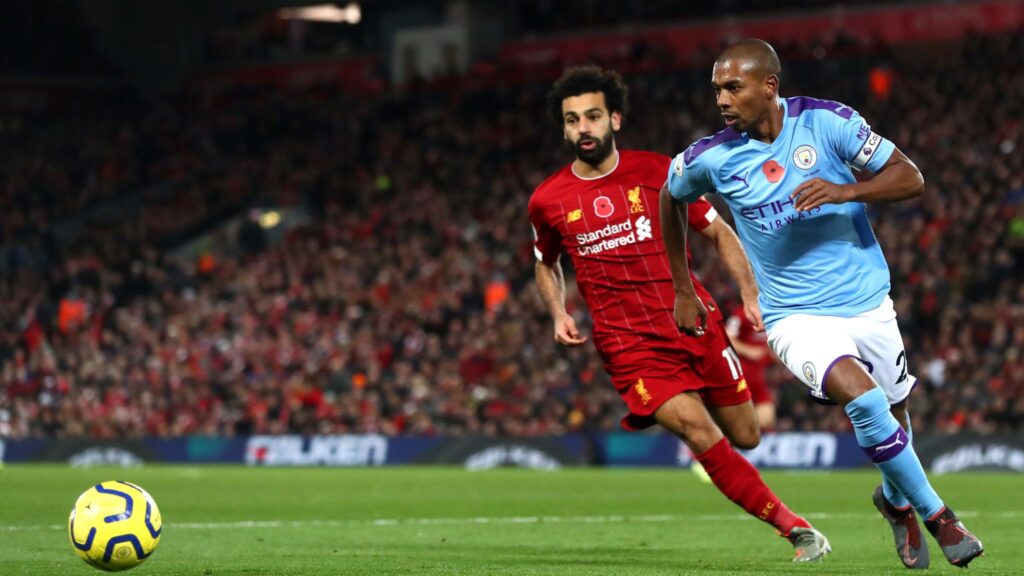
In December 2019. The first case of coronavirus was reported in Wuhan, China, and has since then spread across all continents sweeping aside all major attributes of the year in each country as people were forced back to their various houses.
Despite the measures taken by various authorities across the globe in an attempt to contain the spread of the virus, it has spread throughout the world, from China, down to the United Kingdom, the United States, Italy, Australia, and across Europe, Africa, Asia, Americas and to all part of the world.
More importantly, the coronavirus affects all aspects of society, as well as a sport that includes football. Matches canceled, others behind closed doors, and some leagues were even stopped and everything changed as the day progressed during the peak of the pandemic globally.
Furthermore, soccer is, arguably, the most globalized sport in the world. Since the official date of its foundation, back in 1863, it has spread around the planet, reaching almost every country.
Not in vain, FIFA, the ruling body of soccer has 211 affiliates, more than the 193 countries members of the United Nations. Over time, soccer roots grew so attached to society that it is a valid indicator to understand how the social order responds to general crises.
Soccer book review, however, brings you the manor catastrophe caused by the impact of the coronavirus pandemic on the soccer world. Below is the impact of the COVID-19 impact on soccer.
#1 Virtual Enthusiasm
Enthusiasts are one the major reason why sport generally is part of the everyday life of this modern generation let alone the soccer world.
The passion, the drive, the zeal in the face of the fans during a match is enough motivation to make the players rise beyond their capabilities to do their superheroes things on the field of play during the match.
The controversies, the mistakes, the goals, and the heroic attributes are easily felt by the passionate fans attending the match day as the spectators for the ongoing matches across the globe.
This is the major aspect that makes the soccer world exceptional due to the large number of the crowd cheering their team to glory and booing the opposition to mistakes to ensure that their team emerged victoriously.
Jurgen Klopp admitted to Sky Sport that their addition at their passionate Anfield (the matchday attending fans) is widely missed during the return of football since May 2024.
Despite the resumption of football in some part of the world, the soccer world is experiencing a change in soccer altitude as the factor that made the beautiful game more passionate is now distant as the fan can only show their enthusiasm through virtual support, thus creating a gap between the player and their supporters.
Supporters’ enthusiasm is very vital in the game of soccer but the coronavirus has ensured that this factor remains virtual until the vaccine is largely produced and everyone’s safety is not jeopardized in the name of cheerleading their team to glory.
#2 Financial Incapacitated
On March 11, 2024, the World Health Organization declared the spread of coronavirus a pandemic and since then, authorities across the world have since then enforced lockdown and health practitioners also advised against gatherings and other measures put in place by each region and countries to ensure the safety of their citizens.
The impact of the measures put in place by the authorities had enforced a global recession as the world economy is greatly impaired by the spread of this deadly virus. The soccer world is not immune to this virus’s financial effect as the team rarely focuses on bolstering the squad with the ongoing transfer season in Europe.
The matchday ticket sales and live enthusiasm have a major collaboration. The supporters pay their team to watch their players live inside the stadium. Some teams generate their larger income from the matchday revenue (Arsenal FC of London). The inability of the fans to be a presence in the stadium when soccer resumes is a shot to knee of some club as they can generate more money to run the club like it used to prior to the COVID-19 emergence.
Some are on the verge of bankruptcy, as they are forced to see their star players to ensure the club’s survival are intact (Valencia CF of Spain as an example). Some have to let go of their non- sporting staff to ensure that their bill can be paid (lots of English clubs as an example).
Even, most clubs across Europe have to renegotiate terms of the contract with their players to reduce their contract wages during the peak of the pandemic hit.
The coronavirus has left the soccer world incapacitated to their financial woes, but the lasting effect on football finance is not measurable. Most teams cannot renew the contract of the playing staff due to the fact the financial source of the club had been shrunk to its lowest capability.
The effect of the coronavirus pandemic will continue to shape the soccer world to its new reality, but it would take longer time for the soccer world to come back to old financial reality.
#3 Change in structured Calendar

As the pandemic crisis increases globally, many soccer authorities tend to postpone or halt the soccer event throughout.
Due to the coronavirus pandemic, the Major League Soccer (MLS), the top-tier football league in the US had to extend its postponement of matches in the country until at least June 8 and also, South Korean football league restarted on May 8 after several weeks of postponement.
New seasons in the Chinese and Japanese professional leagues were postponed. Asian Champions League matches involving Chinese clubs Guangzhou Evergrande, Shanghai Shenhua, and Shanghai SIPG were then postponed. The start of the knockout rounds was also moved back to September and the favorite to win the tournament at the moment are Al-Hilal and Guangzhou FC.
Betting Odds by SBR
The CONCACAF (Confederation of North, Central American, and Caribbean Association Football) Nations League Finals, which were scheduled for June 4 to June 7 was equally suspended. The finals, due to be contested by Costa Rica, Honduras, Mexico, and the United States and held in the Houston and Dallas areas of Texas, were scheduled for a later date in venues to be determined.
This year’s Copa America has been postponed until 2024, the South American Football Confederation (CONMEBOL) said on March 17. The 12-team tournament had originally been scheduled to take place from June 12 to July 12 in Colombia and Argentina.
In Germany, the top-flight Bundesliga resumed its season which was scheduled to end in May back on May 16 behind closed doors after a two-month stop to the season. Also, the English Premier League, Italy’s Serie A, Spanish La Liga, and Turkey’s Super Lig resumed in June after a near three-month suspension to the season.
Football in Russia was also suspended. The Russian Football Union agreed to immediately suspend all competitions at a meeting on March 17. The postponed Belgian Cup final was eventually rescheduled for August 1. That is one week before the start of the league’s next season.

Furthermore, the rest of the Dutch football league and French Ligue 1 were canceled and the leading team Ajax in the former will not be declared the champion, but otherwise in the later league.
The Euro 2024 tournament was postponed until 2024, European football’s governing body UEFA said in a statement on March 17. UEFA said that the 24-team tournament, which was due to be staged in 12 nations across the continent from June 12 to July 12 this year, would now take place from June 11 to July 11, 2024.
On April 23, UEFA also postponed the Euro 2024 Women’s championship, and it will now be played in England from July 6 to July 31, in the same venues that were originally proposed to host the event.
UEFA on April 1 suspended all Champions League and Europa League matches which were later staged in a world cup format for August 2024.
On April 12, the Confederation of African Football (CAF) announced the postponement of the two-legged semi-finals of the African Champions League that were supposed to take place in May. “In light of growing concerns and evolving nature on COVID-19 (that has led to a) lockdown in most countries, the CAF Emergency Committee has decided to postpone the matches until further notice,” a statement said.

The African Nations Championship 2020 tournament scheduled for April in Cameroon has been postponed indefinitely, the African Football Federation said in a statement on March 17.
The Confederation of African Football has postponed two rounds of the 2024 Africa Cup of Nations qualifiers scheduled for March 25-31 until later in the year when it is safe to play again.
More importantly, the regular summer transfer, that ensures the business outright of the game which is always due on September 2, of each year when it began on June 10, was deemed to close on October 5, as it was opened in August.
Many things as we grow to know and love about football have been changed to the new set of realities, but the change is inevitable as the heat of the pandemic reduces, the government eases the lockdown everywhere, the soccer activities have begun to gradually take it shape but the change in calendar structure is the most obvious scenarios that manifest in the beautiful game of soccer globally.
Even at the helm of a gun battle in World War 2, soccer still finds its way to brighten up the mood of the spectators across the world in some countries.
Even Hitler watched some soccer matches in Berlin despite the ongoing war that Nazi Germany was fully engaged in. But in the light of the 2024 COVID-19 pandemic, the soccer world was halted and the changes it brought along brought a new set of realities that would eventually soccer world for a longer period, if not forever.

































